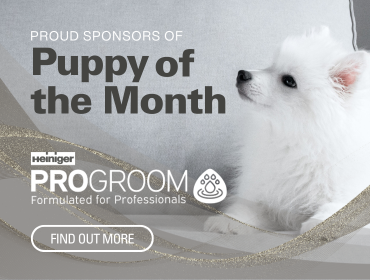Artificial Insemination
In the pedigree dog world, producing the best of the best is the ultimate target for breeders – welcome to the world of AI.
Artificial insemination offers the opportunity to overcome the limitations of time and space as well as allowing breeders to mate dogs that may be disadvantaged in a natural environment.
Due to its versatility, artificial insemination would be a preferred option in many situations including, but not limited to, the mating of dogs some distance apart, an inexperienced or physically disabled stud dog, dogs incompatible in size (height) or an unaccepting or dominant bitch (provided this is not a hereditary condition that needs to be overcome). It also allows the opportunity to fully plan the procedure for maximum results and to examine the semen before insemination.
Different types of AI
There are many variations of artificial insemination, including dog-to-dog artificial, fresh-extended (chilled) and frozen semen insemination. The differences between these methods is essentially time.
Dog-to-dog artificial insemination occurs at the time of collection; fresh-extended (chilled) insemination must occur within days of the collection; and frozen semen insemination allows the collection to be stored for an extended period of time, but must be performed within 12 hours of thawing the specimen.
The frozen specimen is stored in a purpose built container of liquid nitrogen, in a form that is safe and able to be passed through customs. This method offers the luxury of time – wait for the right time in the bitch’s cycle, transport the specimen long distances or even withhold the semen of a stud dog until years after it has died. These benefits have potential that has seen an increase in the popularity of this technique in Australia in recent years.
Innovative techniques
Frozen canine semen has developed over the past two decades with many freezing systems and facilities providing services to the Show Dog and Greyhound worlds. In 1991, Dr John Newell was one of the first to complete the Camelot Farms Frozen Semen course at College Station, Texas, USA. This resulted in John and his business partner, Tony Wiseman, developing FrozenPuppiesDotCom (FPDC), an Australian company providing a stud register and online frozen semen sourcing facility.
“Today, 75 per cent of greyhound pups born in the USA are by frozen semen implant [and 98 per cent of these are by the Camelot method],” Dr Newell explains. “Given the proven success of the Camelot system and its acceptance in the greyhound world, it was not long before our Show Dog clients in Australia were enjoying the success of frozen semen in their breeding programs,” Tony adds.
There are still people who deny the effectiveness of artificial insemination, opting to only take the natural breeding path. However, it seems that this relatively new breeding method is opening doors for Australian breeders which may otherwise have remained closed.
Dogs can be mated states and even countries apart with a minimal cost both in dollars and to the dog’s health, a champion's legacy can be carried on after he dies and non-genetically related breeding problems can be overcome with the help of science.




